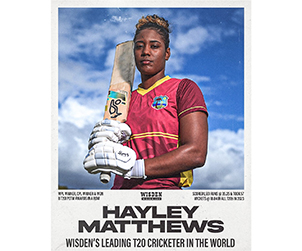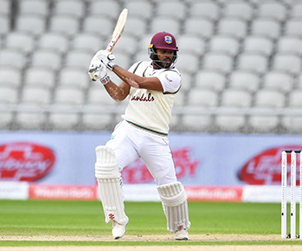Blaming the T20 format for messing up West Indies cricket is very simplistic and fails to acknowledge the need to adjust and adapt to the changing face of cricket.
History will show the West Indies have responded positively to every format of the game to dominate at some point in time. They were world test champions from 1980-1995, they were winners of the ICC World Cup in 1975, and 1979 and they were world T20 champions in 2012.
T20 is a contemporary product that appeals to a cross section of stakeholders- players, sponsors, administrators and the general public some of whom may not have any interest in the game but the festive atmosphere.
T20 fits nicely into the modern fast-paced world where time maximization and determined outcomes are valued. Additionally, T20 also offers entertainment which helps to relieve the stresses and strains of the hectic modern world.
T20 is here to stay and instead of making it culpable for the current state of decline because of a lack of administrative foresight and repeated blunders it should be treated fairly as one of the products through which West Indian cricketers can exhibit their talents and skills. When West Indies was crowned World T20 Champions in 2012, wasn’t that another proud moment in West Indies history for both the players and the West Indian public?
Theoretically, the decline of West Indies cricket started not after losing the Sir Frank Worrell Trophy to Australia in 1995 in the Caribbean but before. Any economy that strives on natural resources and fails to diversify, when the natural resources are no more and or are uncompetitive, the economy will suffer for extended periods.
Likewise, when the constant STOCK of natural talented players began to dwindle, the developmental systems were not in place to ensure that the replacement players were up to the standard required to not only compete at the international level but also dominate. The question of a truly determined West Indian identity is commonly bandied about by many commentators as missing by the current crop of players when compared to players of the years gone by. And while this may be true, it is important to be reminded of CLR James classic 1963 work, Beyond a Boundary, where he pointed out that cricket reflected the socio-economic structure of society and the same holds today.
The fundamental difference between the contemporary and past is that cricket today is an economic product.
In the past cricket was deeply connected to the social/political psyche of not only the players but the spectators. Anyone who have looked at and analyzed Fire in Babylon would understand that cricket was more than a game.
This was best epitomized when England’s South African born captain the late Tony Grieg said he would make “those West Indians grovel.” Winning became important as it revealed the strength and dignity of a “Third World” people.
Global capitalism through MARKET forces and neo-classical economics have been breaking down the nation-state barriers and redefining national and international identities. This is more obvious in small developing societies like those of the Caribbean. Economics or more aptly money is the order of the day. Cricket has become incorporated into the capitalists system and have become commodified. A practical and realistic approach has to be undertaken to arrest the decline of West Indies cricket. The administrators have to connect the economic and socio-historical meaning of cricket so as to produce an identity that is understanding of the game’s true meaning to West Indian people and approach it likewise.
Australia, England, New Zealand, South Africa, Sri Lanka, Pakistan, and India have been doing it.
Once this can done, then each format can be viewed as a product that will have its own brand managers. Each product will be viewed as being important to the WICB, players, sponsors and the general public.
Australia, England, New Zealand, South Africa, Sri Lanka, Pakistan, and India have been doing it. As the Australians tend to say, pick horses for courses. Therefore, T20 players should not be expected to shore up the test team and vice versa.
The purist may jump up and down arguing that test cricket is the ultimate form, to which there may be no denying, however, once the team continues losing in this format it will fail to attract support. Large emotive crowds were common when the West Indies dominated the world as they had developed a winning culture. Caribbean crowds are bandwagonist and so loyalty to a losing culture will not be appealing especially if the festive atmosphere that is common in T20 is absent. Large crowds at test cricket is possible as was seen in recent test series between West Indies and South Africa, Australia and India and even New Zealand and Sri Lanka.
History has shown that West Indian players have been able to adjust and adapt to different formats. Administrators have to manage the different formats smartly. Then there will be no need to blame T20 or any format for any decline.





















